Search this site ...
African photography
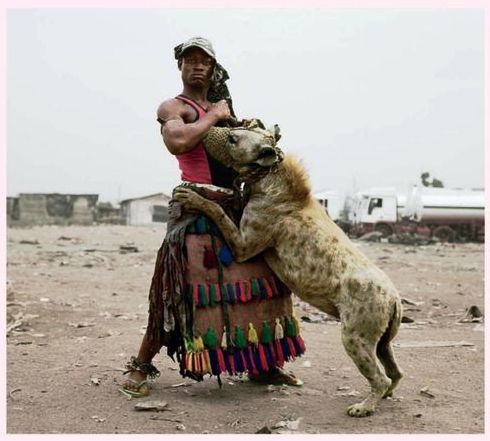 Hyena handlers of Nigeria, Pieter Hugo
Hyena handlers of Nigeria, Pieter HugoAfrican photography is an area where African artists have long expressed their individuality as far back as the 1840's and today it is still a very established and dynamic form of artistic manifestation.
Modern Studio Portraiture in Africa
Seydou Keita, b Mali 1921-2001
Seydou was born in Bamako in 1921. He learned his trade first from a French photographic supply store owner and then from his mentor, Mountaga Traore.
He set up his first studio in 1948, retiring in 1977 but only after spending 15 years in service to the Socialist government who installed him as an official photographer.
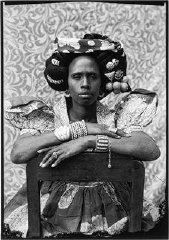
Keita's work provides us with a chronological peep hole into the makeup of Bamako society in all its transitions. He used props in the studio, like radios and sewing machines, which give us insight into the cultural changes Mali was experiencing.
His eloquent work is characterized by an exquisite sense of gesture and skillful posing which reflect the intimacy he managed to capture with his subjects. He often used fabric backgrounds so that his compositions had layers of pattern upon pattern conveying a sense of richness.
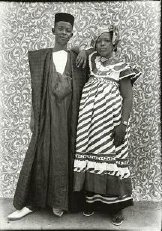
There is sheer joy to be found in studying a Keita studio portrait; the innovative and competent technical aspects of light, framing and composition counterpoint the fascination of the subject at hand; the costumes, the props, the accessories, managing to convey at once his client's social identity and status while enthusiastically embracing modernity.
An archive of over 10,000 prints entered world vision in the 1990's achieving Keita world recognition.
Malik Sadibe, b Mali, 1935-2016
Known as "The Eye of Bamako" Malik Sadibe captured the youth culture of the 60s and 70s in the capital of Mali, Bamako.
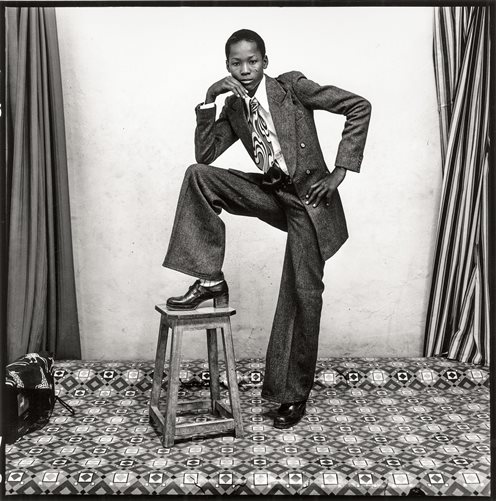 Un Jeune Gentleman - Sadibe
Un Jeune Gentleman - SadibeSadibe took mesmerizing photos of his community members during the decade before independence and after. Compared to Keita, his subjects are more engaging and have a more active role in constructing the image of themselves that they would like portrayed. A likeness could be obtained and captured for eternity.
His work was not known much to the West until the early 90's. Andre Magnin, the French collector was instrumental in making sure the world knew about the talent and skill of this extraordinary photographer.
Still practicing until his death, he became the first African artist to be awarded the Golden Lion for Lifetime Achievement at the Venice Biennale in 2007 ... a fitting tribute to this modest man.
James Barnor, b 1929, Ghana
James Barnor began working out of Jamestown, Accra in 1947 when he established a photographic studio called "Forever Young". He is attributed with setting up the first color processing facilities in Ghana in the 1970's.
He was also a photojournalist for the Daily Graphic and Drum Magazine, covering the daily lives of people both in Ghana and later in London where he recorded the advent of popular culture surrounding the Beatles and other such icons.
He lives in London still practicing his craft and lecturing, a colorful character by all definitions.
JD Ojeikere 1930-2014, Nigeria
JD Ojeikere started capturing images of Nigerian culture in the 50's. For 35 years he has captured a record of the fabulously ornamental, almost sculptural hairstyles of African men, revealing them as an art form.
Never digressing from his subject, he has provided us with a fascinating catalog, a unique ethnographic body of work that must be considered a national treasure.
Soloman Osagie Alonge (Chief), 1911-1994, Nigeria
As Nigeria's official royal court photographer, Alonge's work spanned over 60 years capturing the reign of 2 Obas, Akenzua II (1933-78) and Erediauwa II (1979-present) and recording political and social events surrounding the Royal Palace of Benin.
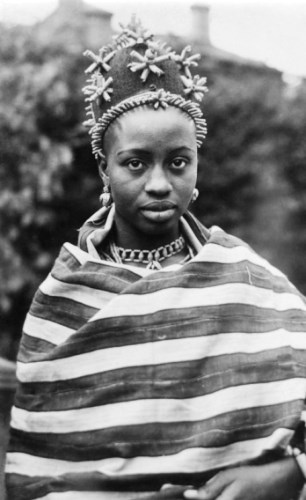 Queen Han Akenzua - trip to London,1956
Queen Han Akenzua - trip to London,1956They form an extraordinarily valuable historical and cultural insight into all the codes of royal life, the ceremonies and rituals and all the intricacies of dress, behavior, rites, performances etc.
In 1942 the photographer created the Ideal Studio where he photographed Nigeria's rising classes revealing studio portraits of liberal and stylish young men and women.
OTHER STUDIO PHOTOGRAPHERS
- A Gomes and Sons, late 19th Century, SA
- ZJS Ndimande & Son, studio founded in 1940, Greyton, Natal
- Joseph Moise Agbodjelou 1912 - 2000, Benin
- SJ Kitty Moodley, 1922-1987, Durban
- Adama Kouyate 1928 - 2020, Mali
Joseph Moise Agbodjelou was born in 1945 in Benin. Working as a Kodak salesman after being drafted into the army in 1935, he was exposed to the world of photography and by 1960 he had opened a studio of his own "France Photo" where he covered every part of Benin life.
He died in 1999 after fully embracing the discipline in 1994.
Adama Kouyate was born in 1928 in a French Sudanese village of what was then named Bougouni (now Mali). He died in 2020 and his studio photography has since come to the attention of many and widely recognised as holding place in the development of photography on the African continent.
His predominantly monochromatic images represented a distant cultural moment in time ie. Mali's liberation from French colonial rule.
After apprenticeships with 2 established photographers, Bakaru Doumbia and the Frenchman Pierre Garnier, 'the white master of West African photography', he established his own studio in 1949. Traveling frequently, other studios were set up in Ougadougou, Burkina Faso and the Ivory Coast before finally settling down in Segou, Mali.
In these studios he managed to capture the emergence of Africa's middle class.
Often using painted, draped backdrops or just a few key selected props, he has given us a touching and elegant view of society in all its fashion and cultural status.
There are many indigenous African photographers who have made significant contributions to image-making in Africa, blending Western technology with African perspectives and social commentary.
Ernest Cole, 1940-1990, South Africa
Ernest Cole was one of South Africa's first black photo-journalists. His powerful images revealed to the world, with both courage and compassion, life under the apartheid system.
He started his career working as a darkroom assistant at the epicentral Drum Magazine where he was exposed to the cultural icons of the time and the leaders of the resistance / anti-apartheid movement in SA.
In his work he looked at the critical issues that affected black people. Arrested in 1966 for subversive action he was exiled and left the country of his birth for Sweden and then the USA. He produced a book called "House of Bondage" with 185 disturbing and enlightening images of the apartheid regime and the effects of the draconian and separatist laws on society. He saw every aspect of this oppression with a keen and searching eye and a passionate heart.
Below is a photograph called 'Police Swoop' with a teenager being interrogated about whether he is carrying the mandatory ' Pass' . A white plainclothesman looks on.
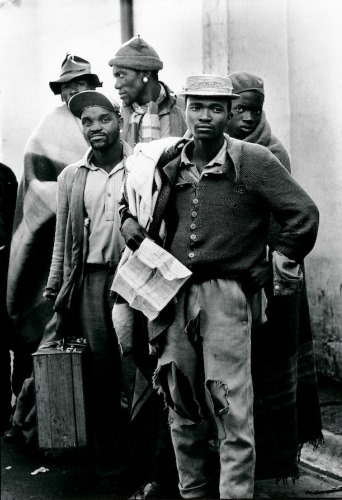
Cole lived in destitution for much of his life in America, living on the streets and tragically succumbing to cancer at the age of 49. His work was rescued by a Swedish photographer and given to the Hasselblad Institution who developed an Ernest Cole Trust and continues to exhibit this important and substantial collection.
Ricardo Rangel, 1924-2009, Mozambique
Rangel was the official photographer for the revolutionary government but after independence he chose to concentrate on more social issues in the city of his birth, Maputo (Lourenco Marques).
His documentary work on the struggle and his country's troubled history are equally important but he is most famous for his series called "Our Nightly Bread" which recorded Maputo's street and club life with a focus on the city's prostitutes.
His commitment to a particular place gives his work authenticity and emotional depth.
Sanle Sory, b 1943, Burkina Faso
Photographer Ibrahima Sanle Sory was born in 1943 in Bobo-Dioulasso, Volta (now known as Burkina Faso). He began his career in Bobo-Dioulasso in 1960 opening the Volta Photo Studio where he documented the fast evolution of this cultural and economic capital city for over 2 decades following Burkina Faso's independence from the French.
He often painted his own backgrounds for his studio shot giving a unique quality to his work. Rich people, poor people, the religious, the artistic, the creative ... everyone could be a star in Volta Studio.
Being relatively wealthy he could afford his own transport and traveled around the city to various locations doing weddings, attending musical events embracing and filming the vibrant youth scene. (See image above from his Night Series).
We are lucky to be able to have a peep hole in this exciting world where freedom of expression reigned and youths embraced this opportunity wholeheartedly.
Samuel Fosso, b 1962, Cameroon
Samuel is known for his self-portraiture, something that occurred when he fled Nigeria at a very young age to live in the Central African Republic.
Opening a studio in Bangui at the age of 13, he took portraits, passport and wedding photos by day and experimented at night, taking photos of himself in various costumes set against cloth backgrounds to send back to his mother in Nigeria. His expressive black and white self-portraits from the 1970's make reference to popular West African culture.
Later his images began to become very direct, sometimes provocative and increasingly experimental, exploring topics such as sexuality, gender and African self-representation. The self-portraits are intimate portrayals of his imaginings .... examining his identity through costume, impersonation and performance.
In 2008 he created an arresting and rigorous series of photographs he called ' African Spirits', re-enacting famous portraits of African leaders such as Emperor Haile Selassie and Patrice Lumumba or prominent cultural figures like Leopold Sedar Senghor... and extending his subjects to include diaspora icons such as Muhammed Ali and Malcolm X.
In 2018 he won the ICP award for his series' Black Pope ''. His intent here is to challenge the Catholic veneration of whiteness concerning the Pope.
Gideon Mendel b 1959, South Africa
Gideon Mendel began his photography in 1984 spurred on by a desire to capture in film the gross indecencies and inequalities South Africans were subjected to during the latter years of apartheid.
In these striking and uniquely coloured collages, Mendel in a process of re-engaging with his thirty year old photographs has blended them with the writing documented on the back, so the contextual information comes into view and informs the viewer in a very intriguing manner.
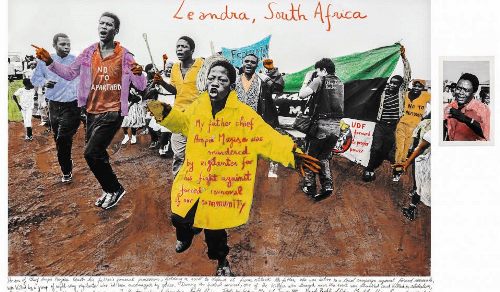 Leandra, South Africa - Mendel
Leandra, South Africa - MendelWhen Mandela was finally released from prison in the early 90's Mendel left his homeland to live in the UK where he turned his attention to all manner of humanity subjects concerned not only with Africa but also many other nations and continents . In 1996 he became the recipient of the W Eugene Smith Memorial Fund for Humanistic Photography which enabled him to produce a book called "A Broken Landscape".
One of the deeply empathetic images from that production is seen below.. a mother carrying her 30 yr old son, stricken with HIV, to lie in the shade.
He has followed many topics during his illustrious career. One of the most potent is featured in a series called Submerged Portraits... here a Nigerian couple stands hip-deep in floodwater, their gaze unfaltering and direct.
Established Photographers from the
African continent
- Agbodjelou, Leonce Raphael b 1965, Benin
- Ballen, Roger b1950, SA / USA
- Baloji, Sammy b 1978, DRC
- Basto, Luis b 1969, Mozambique
- Bieber, Jodi b 1966, South Africa
- Branquinho Filipe, b 1977, Mozambique
- Camar, Seydou b 1983, Mali
- Chagas Edson b 1977, Angola
- Choumali, Joanna b 1975, Cote D'Ivoire
- Cole, Ernest b 1940-1990, South Africa
- Depara, Jean b 1928-1997, Angola / DRC
- Esiebo, Andrew b 1978, Nigeria
- Essamba, Angele Etoundi b 1962, Cameroon
- Fani-Kayode, Rotimi b 1955-1989, Nigeria
- Fosso, Samuel b 1962, Cameroon
- Goldblatt, David b 1930, South Africa
- Hajjaj, Hussan b 1961, Morocco
- Hugo, Pieter b 1976, South Africa
- Karray, Mouna b 1970, Tunisia
- Kodjo, Paul b 1939, Ivory Coast
- Mendel, Gideon b 1959, South Africa
- Mofokeng, Santu (1956-2020), South Africa
- Monteiro, Fabrice b 1972, Senegal
- Mukwazhi, Tsvangirayi, Zimbabwe
- Muluneh, Aida b 1974, Ethiopia
- Nkanga, Otobong b 1974, Nigeria
- Osodi, George b 1974, Nigeria
- Ouedraogo, Nyaba b 1978, Burkina Faso
- Pinto, Mauro b 1974, Mozambique
- Thiam, Ibrahima b 1976, Senegal
- Tillim, Guy b 1962, South Africa
- Tshabangu, Andrew b 1966, South Africa
- Uche Okpa-Iroha b 1972, Nigeria
- Ude Ike b 1964, Nigeria
- Veleko, Nontsikelelo b 1977, South Africa
Zwelethu Mthethwa ... b 1960. Mthethwa can be accredited with being a photographer who has had significant impact on the Western art world. He has had over 35 international solo exhibitions and as many group shows.
Born into apartheid years, he had special permission to attend his school of art in Cape Town. He then received a scholarship that enabled him to live in the United States which substantially strengthened his career.
His candid pictorial representation of South Africa's life after apartheid presents dignified subjects who appear defiant even under the stress of social and economic hardship. He challenges pictorially, in powerful and sustained images, issues of agricultural labor, rural industries and the effects thereof on the environment.
Delphine Diaw Diallo b 1977 or Senegalese descent.
Schooled in Paris, Diallo currently resides in New York. She maintains annual excursions to Senegal to document the journey of her life and that of her family and extended relationships in Dakar, St Louis and Goree Island.
It is her intention to use her work both as a reflection on culture and, more radically, to inspire social change. It also satisfies her creative urges and her inquiring mind.
When in the States she explores and records street culture and fashion merging her 2 worlds in her mixed media collages. She is very productive, producing what she calls 'morning scribbles' every day, uploading her images daily on Instagram.
These photos below are from a series called the 'Highness Project' where Diallo mixes hair sculpture with design, fashion and photography.
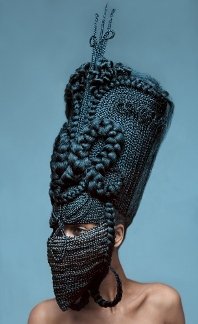
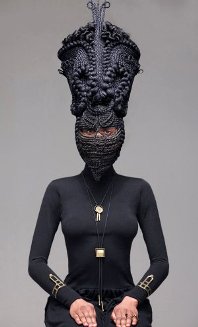
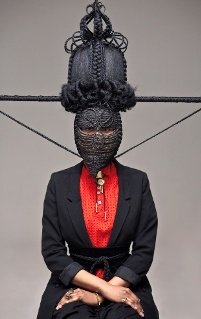
They also pay homage to her photographic forefathers like JD Ojeikere, Keita and Sidibe in continuing to capture in a posed studio environment Africa's favorite form of personal expression ... which can literally be called hair art!
Jodie Bieber was born in 1966 but only began her professional photography career in 1994, working for The Star newspaper during the South African democratic elections.
After attending the World Press Masterclass in the Netherlands in 1996, doors were opened for on the international front, receiving many assignments. She has won many awards over the years for her contributions, most notably the Premier Award at World Press Photo in 2010 for her portrait of Bibi Aisha for Time magazine.
Over the past 20 years Bieber has looked the universal issues of gangsterism, illegality and repatriation across borders, domestic violence, township living, shifting stereotypes.
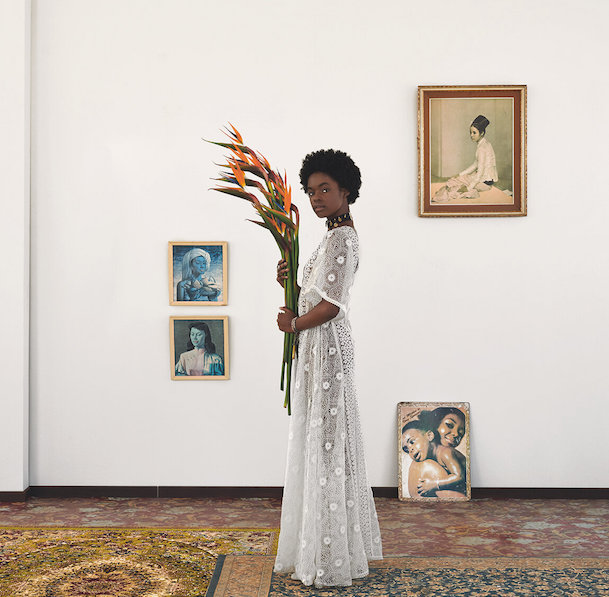 Jodi Bieber, Yemi Okesokun, Dior
Jodi Bieber, Yemi Okesokun, DiorMost recently and on the other side of the coin, she has developed a series of starkly humorous family portraits (her husband in lockdown) and charming photos for Dior fashion.
Uche Okpa-Iroha b 1972, hails from Nigeria where he currently works in Lagos.
He has been awarded the Seydou Keita prize twice and is a very involved and motivated artist who is a member of more than one collective, aiming to elevate photography as an art form across borders.
He actively pursues making photography accessible and affordable for all in his home country.
Angele Etoundi Essamba was born in 1962 in Douala, Cameroon.
These days she lives and works in Amsterdam but her work continues to be influenced by her African lineage as well as her own diverse cultural environment.
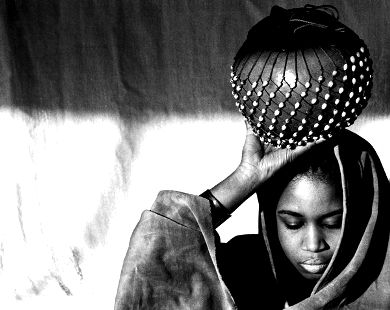 Marianne, 1988
Marianne, 1988In her work she challenges stereotypical representations of women and is mostly concerned with showing women as strong and proud. She often uses black and white photography to enhance that notion of power and self-awareness as well as invoking a sense of drama about her images. Over the years her work has gone from more traditional content to very avant-garde and even embracing semi-nudity but always to a lesser extent which does not undermine her subject in any way.
Leonce Raphael Agbodjelou b 1965, Porto-Novo, Benin.
Leonce is the son of Joseph Moise Agbodjelou, 1912-2000, a pioneer of studio photography in Benin.
Leonce is known for his dramatic, staged photographs of his home country and culture.
They have been purchased by galleries, museums and private collectors through out the world, the latest being the Zeitz MOCCA in Cape Town, SA.
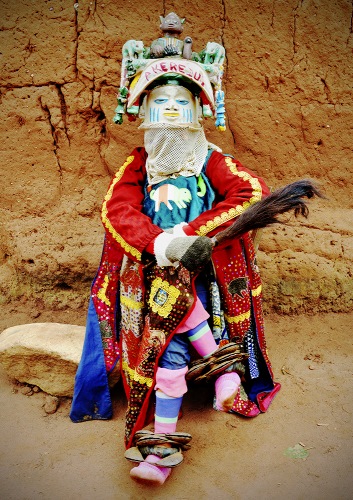 Egoungoun Guelede - 'Efe qui sort la Nuit', 2017
Egoungoun Guelede - 'Efe qui sort la Nuit', 2017He has an on-going series called Citizens of Porto-Novo, a portraiture project that aims to capture a generation caught between tradition and progress. Other series have been:
- From Dahomey to Benin, 2010
- Egungun, 2011
- Demoiselles de Porto-Novo, 2012
- Borderlands, 2012
- Code Noir, (Untitled triptychs), 2014
- Musclemen, 2015
- 2017-2018 Leonce will be part of an international traveling exhibition called "Making Africa - A Continent of Contemporary Design"
- 2020 - Group show, 'Fashioning Black Identity: Africa and the African Diaspora'
The series 'Demoiselles of Porto-Novo' has a more brooding air to the collection.
The images were filmed in a substantial 124 yr old house that was commissioned by Agbodjelou's grandfather and has definitely seen better days. A sense of loss hangs in the air and there is a slight degree of the sinister as well.. the palette is gloomy and sombre.
Zanele Muholi , b 1972, South Africa.
Zanele Muholi is a South African 'visual activist' who works with photography, video, film and installation to get her message across. And what a message....
Her early work embraces herself as a black, South African female and a lesbian. Her later series include topics such as transgender, hate crimes, rape, homophobia, massacres and violence, injustice, racism.
There are no issues this courageous artist will not explore, despite personal threats to herself. She pushes her own and her viewer's boundaries to the limit forcing them to engage - somewhat uncomfortably - with the work in front of them.
In her self-portrait series, a fierce gaze challenges the viewer to just pass on.
She has won too many awards to mention and at any one time has at least 3 exhibitions going on somewhere in the world. Very recently shown in Cape Town was Brave Beauties, a series of photographs exhibited as wallpapers giving them an elevated, somewhat heroic scale and stance that ensured the viewer was fully engaged.
Joana Choumali b 1974, Abidjan, Cote D'Ivoire
Choumali uses fine art photography to explore issues of identity and the full diversity of African cultures. Conceptual portraiture, mixed media and documentary work make up the full spectrum of her talents in this field. More recently she has started to embroider her photographs.
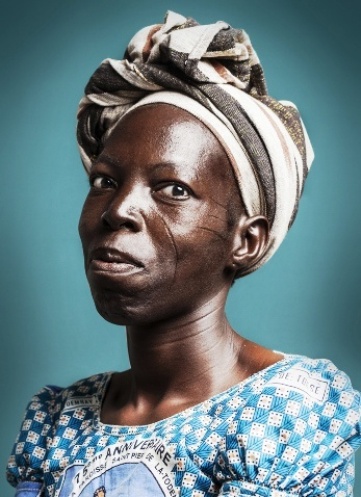 From the 'Haabre'Series, Joana Choumali
From the 'Haabre'Series, Joana ChoumaliIntegrity is key to her work. Her journalistic nature ensures she respects the whole story not just going for the transient, dramatic shot. She states she is not here to judge, only to observe and record the time taken to get to know her models well (often up to 40 mins) and to take care to transcribe the testimonials of her subjects alongside the images.
Two of her most acclaimed series of photographs are:
- "Haabre - The Last Generation 'Series of 2014 which recorded the outgoing cultural practice of facial scarification in W Africa and;
- "Resilients" series where young women were recorded against a handmade, antiqued backdrop wearing the personal, traditional clothing of their grandmothers or other older relationships.
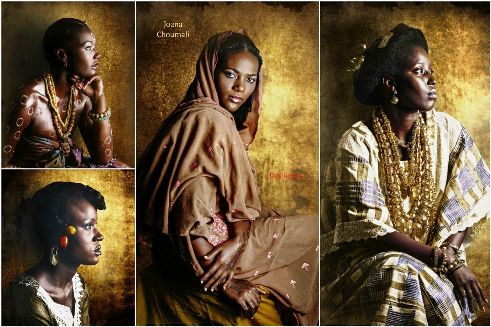 Joana Choumali, 'Resilients'
Joana Choumali, 'Resilients'Nyaba Ouedraogo b 1978, Bouyounou, Burkina Faso
This self-taught photographer lives between Paris and Ouagadougou.
Blending photojournalism and documentation with his own special brand of aesthetics, he creates arrest and award winning photography of the challenging and sometimes brutal living and working conditions endured in certain areas of the African continent.
His images often emphasize the physical strength and mental toughness required to survive the hardship involved in the tasks. In other series he concentrates on shedding light on specific cultures and practices.
Aida Muleneh b 1974, Ethiopia
Born in Ethiopia, Muleneh left the country at young age spending time in both the UK and the Yemen. Educated in Canada she is definitely a world citizen.
Her work, however, is firmly cemented in her heritage and her striking images, while being extremely contemporary in approach, are predominantly of black women. Extremely eye catching and graphic, her vibrant images are powerful in both stature and their visual message.... exploring a new Ethiopian identity.
Her photo festival Addis Photo Fest (AFF) seeks to shape a new vision of the continent. She is very active in continuing to educate, curate and develop cultural projects in Ethiopia but her influence is felt much further afield.
Her work can be found in major collections and museums around the world.
Contemporary African Photographers
Listed here are some of Africa's leading contemporary photographers, practicing both on and off the African continent.
- Adjovi, Laeila b 1982, Benin / France
- Aken, Jenevieve b 1989, Nigeria
- Alaoui, Leila 1982-2016, Morocco / France
- Cherono Ng'ok, Mimi b 1983, Kenya
- Chiurai, Kudzanai, b 1981, Zimbabwe
- Dingwall, Justin b 1983, South Africa
- Diop, Omar Victor b 1980, Senegal
- Erizku, Awol b 1988 Ethiopia / USA
- Essop, Hasan and Hassain b 1985, South Africa
- Guibinga, Yannis Davy b 1987, Gabon
- Jasse, Delio b 1980, Angola
- Kabiru, Cyrus b 1984, Kenya
- Karmali, Tahir Carl b 1987, Kenya/USA
- Leuba, Namsa b 1982, Guinea / Switzerland
- Macilau, Mario b 1984, Mozambique
- Mlangeni, Sabelo b 1980, South Africa
- Mntambo, Nandipha b 1982, South Africa
- Nxedlana Jamal b 1985 South Africa
- Nxumulao, N Musa b 1986, Soweto
- Ogunbanwo, Lakin b 1987, Nigeria
- Okereke, Emeka b 1980, Nigeria
- Rugi, Athi-Putra b 1984, South Africa
- Sekgala, Thabisa (1981 - 2014) South Africa
- Senga, Georges b 1983, Congo
- Subotsky, Michael b 1981, South Africa
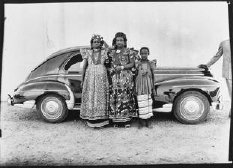
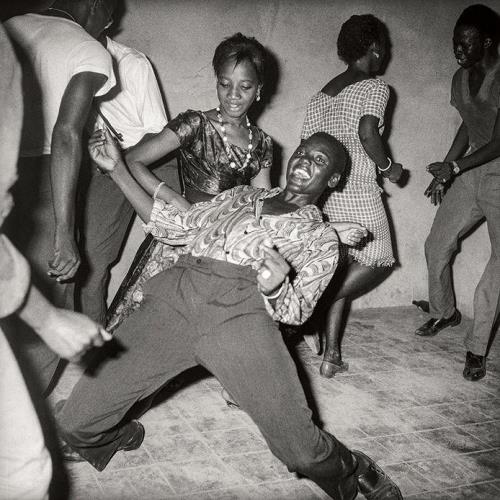
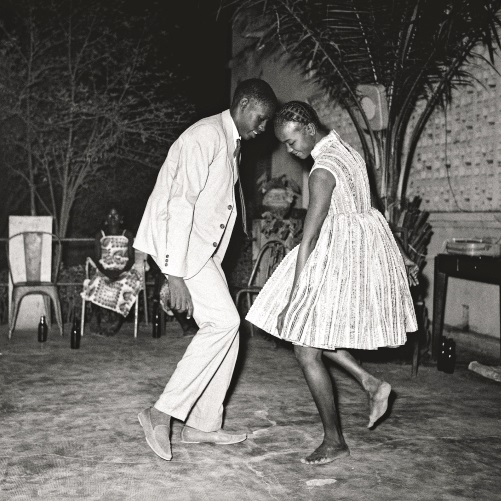
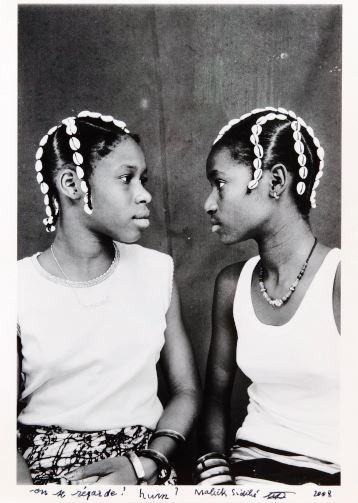
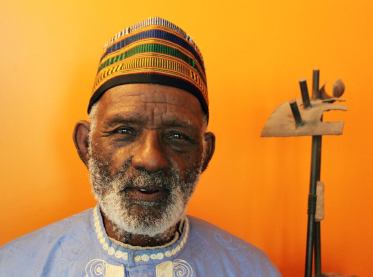
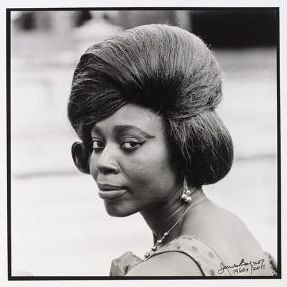
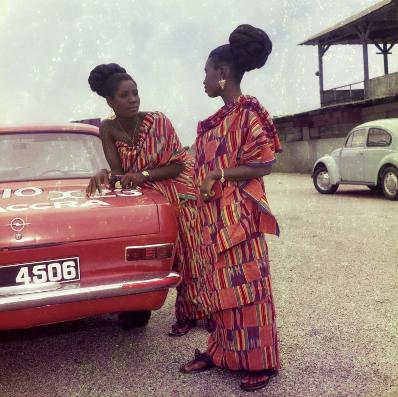

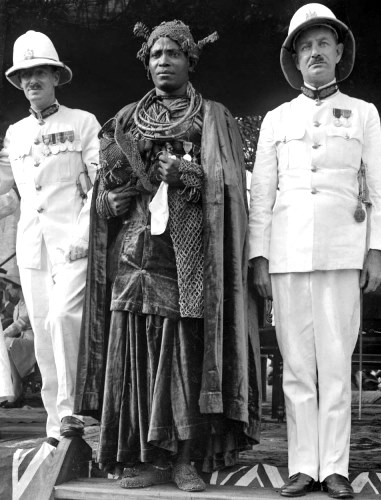
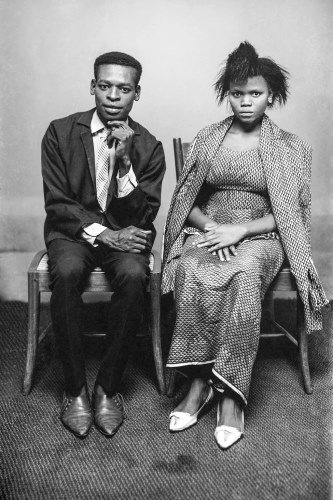
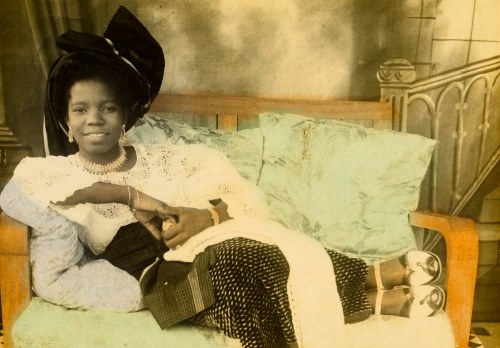
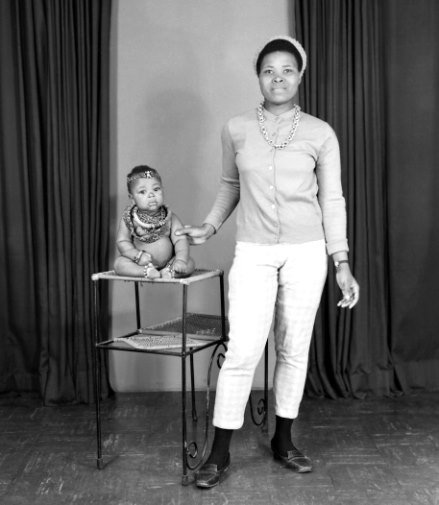
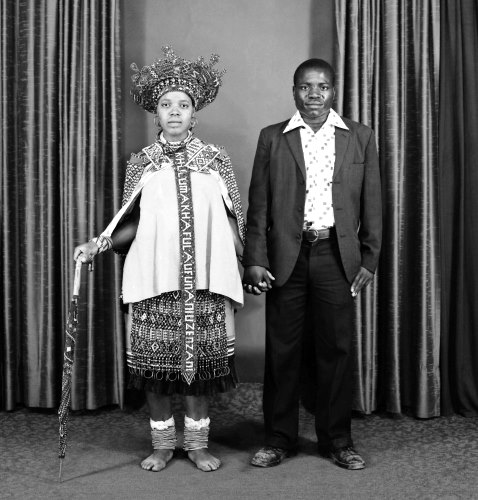
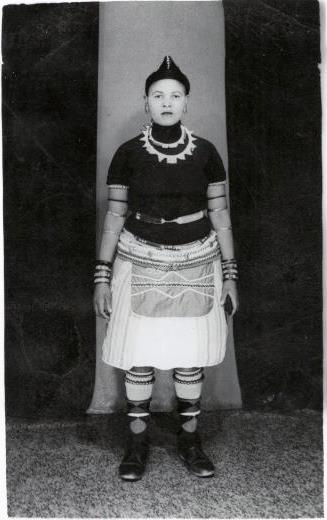
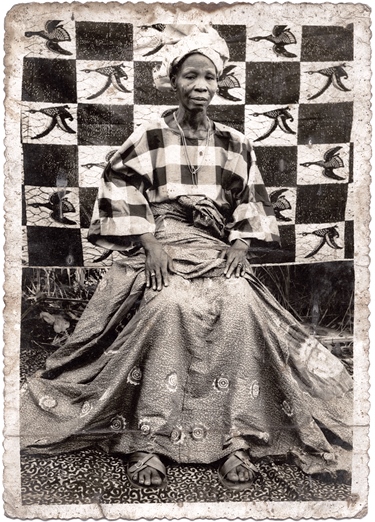
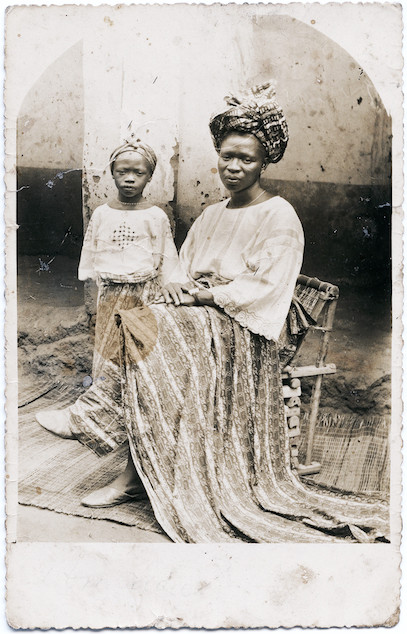
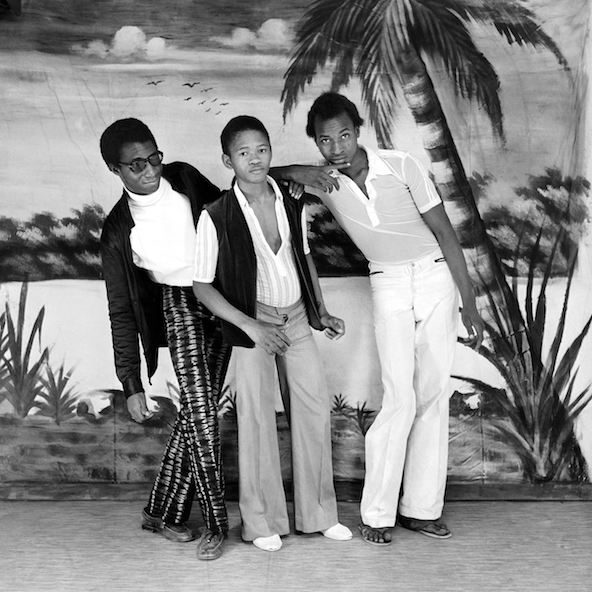
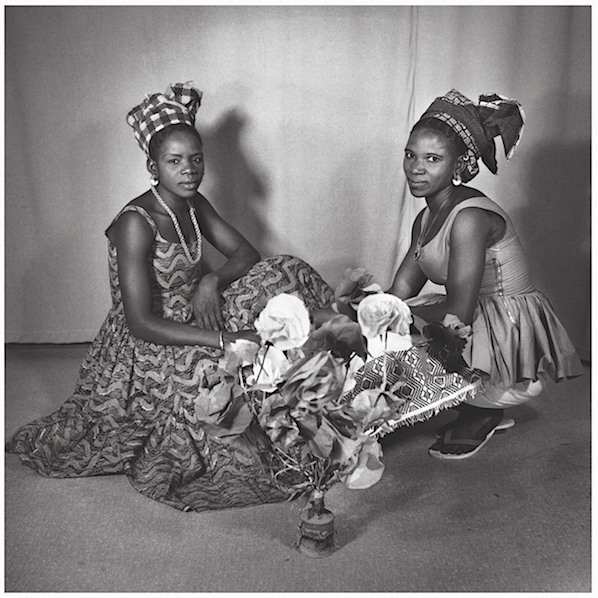
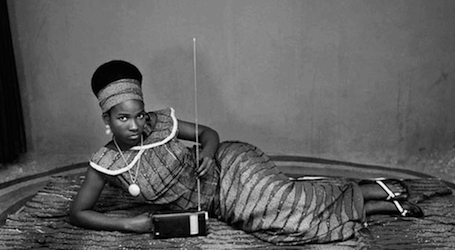
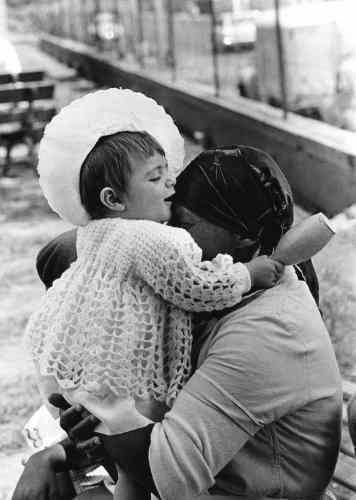
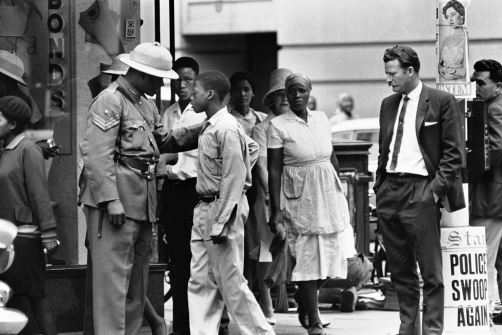
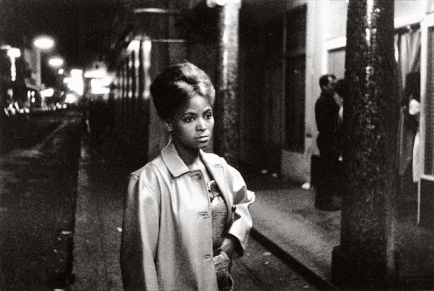
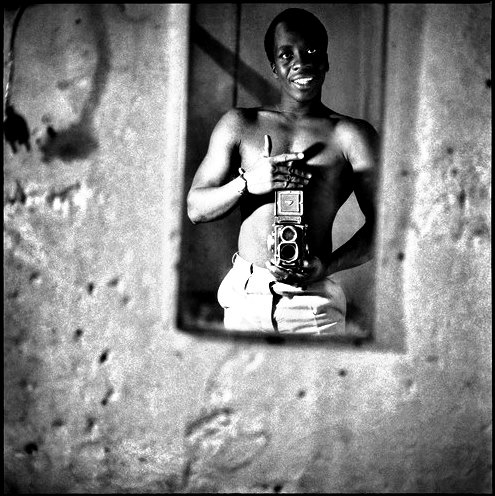
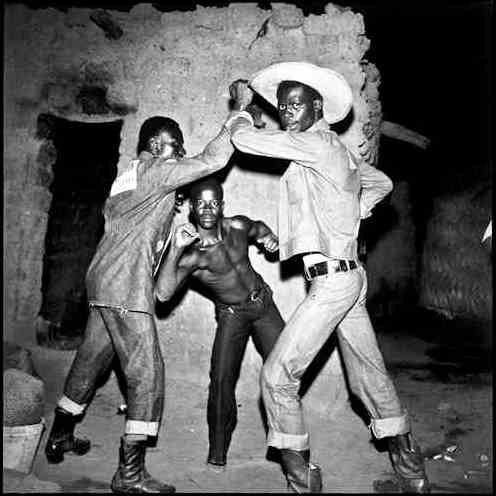
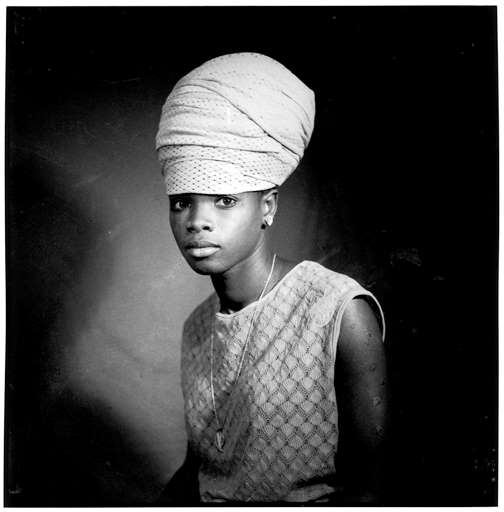
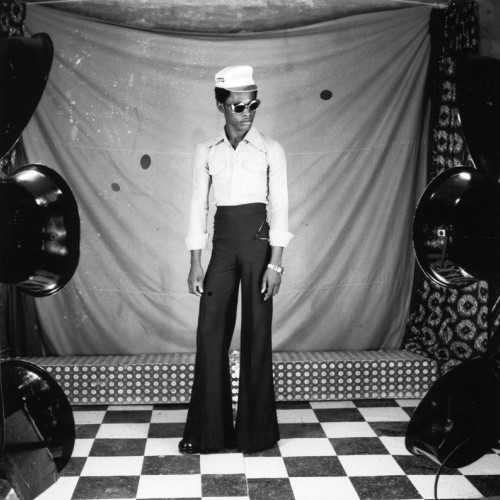
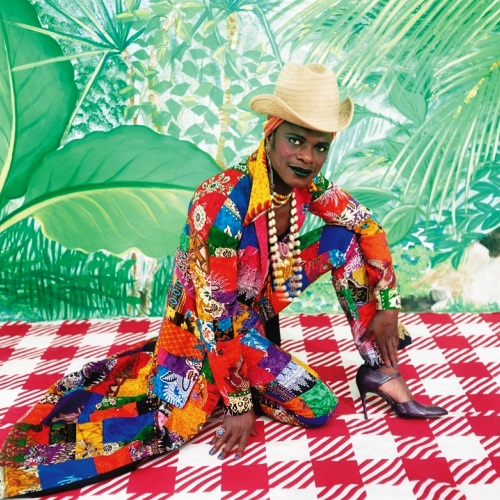
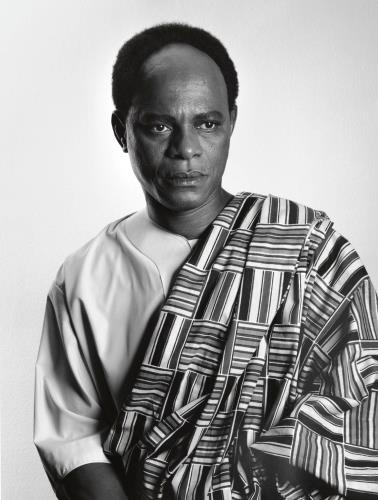
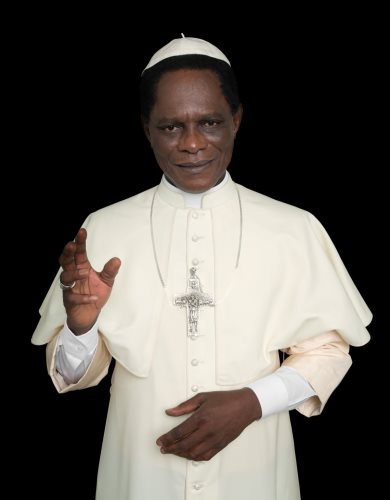
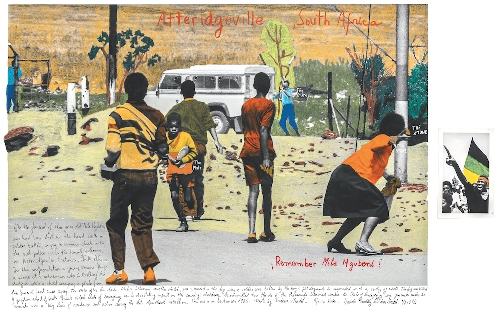
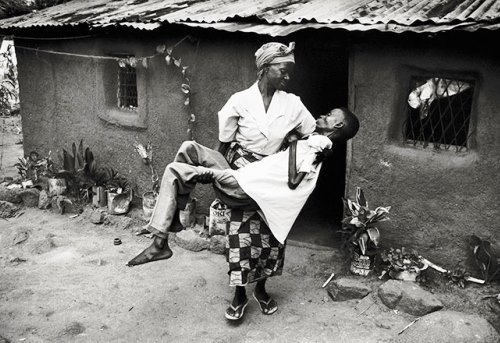
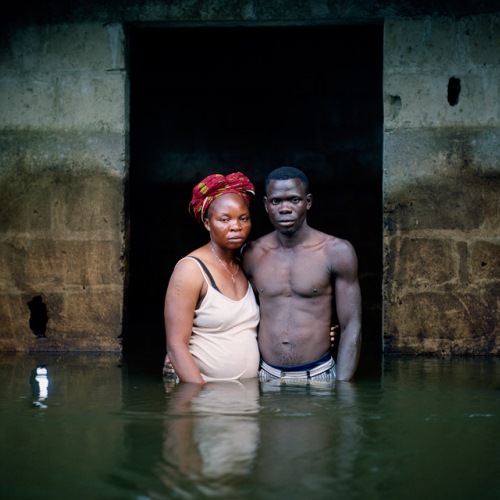
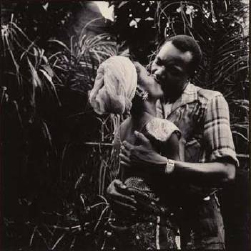
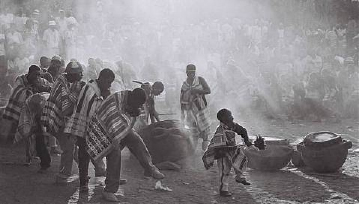
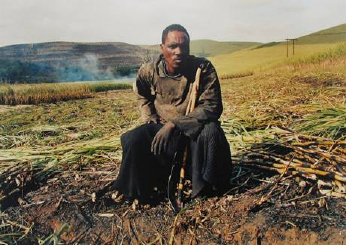
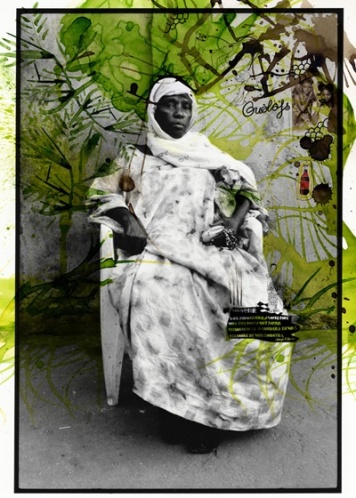
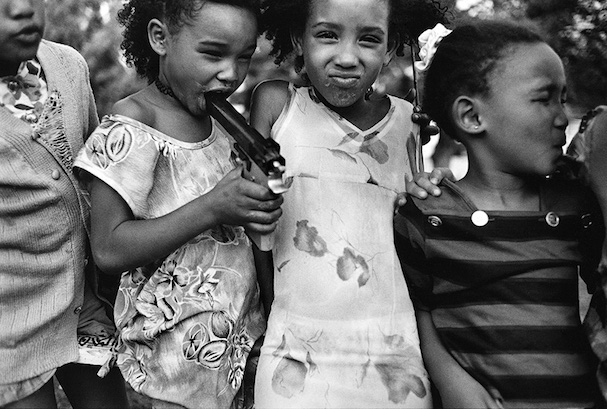
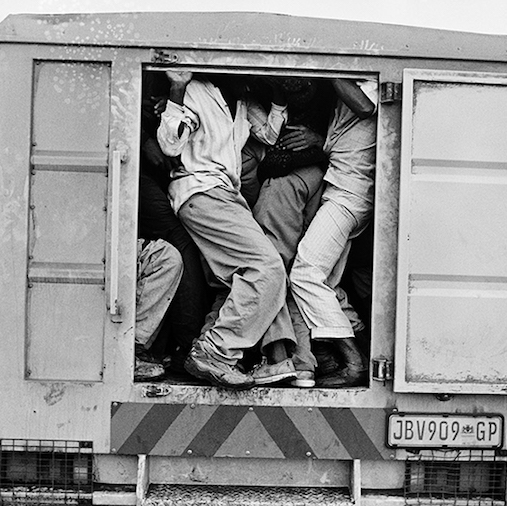
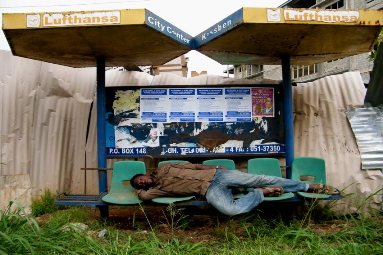
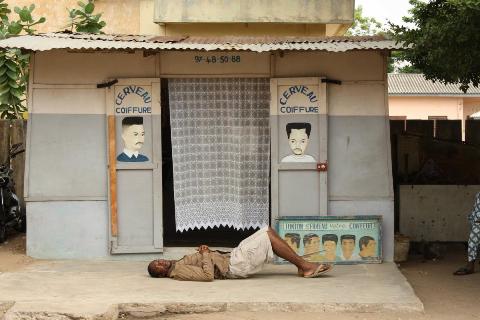
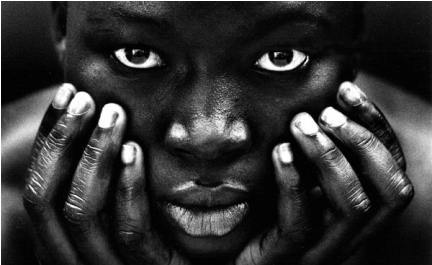
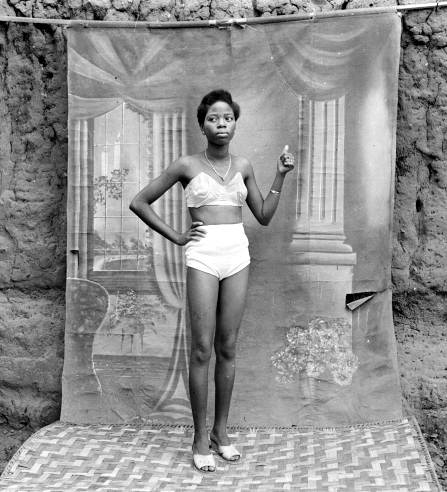
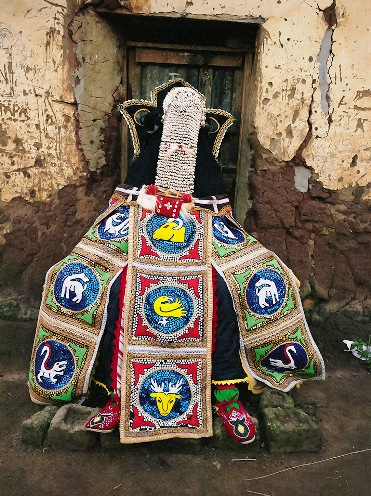
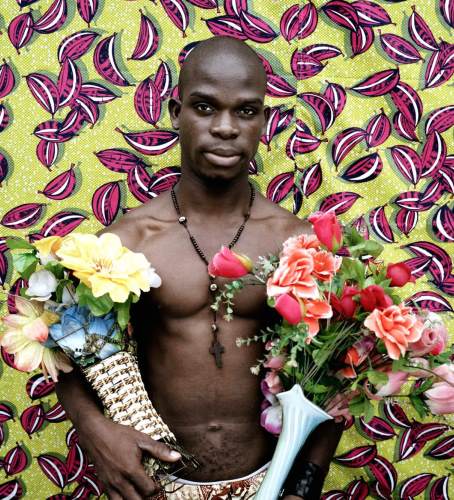
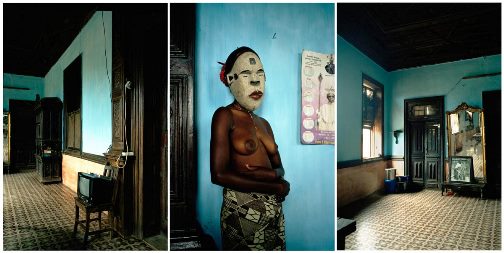
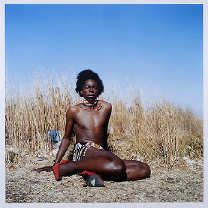
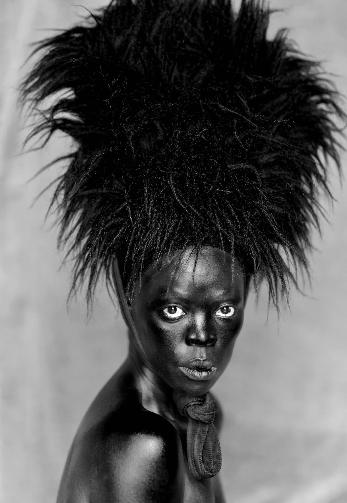
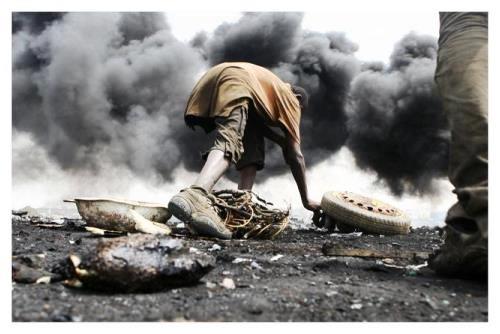
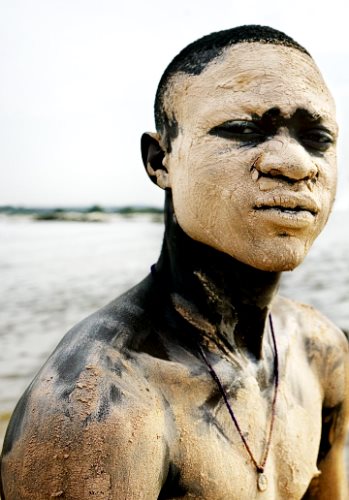
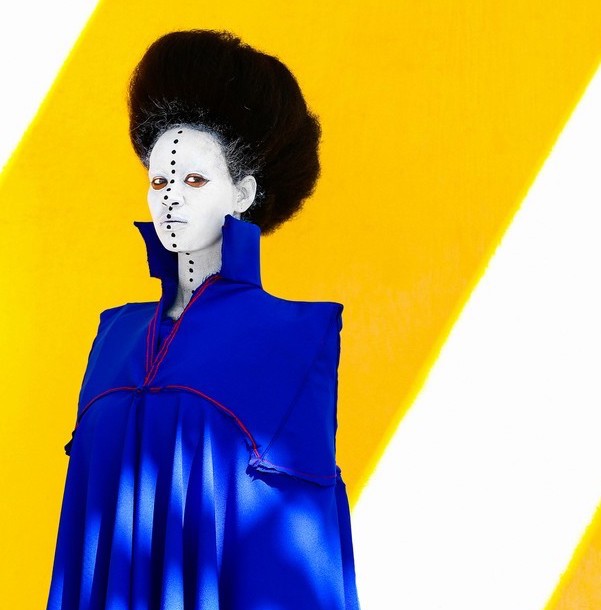
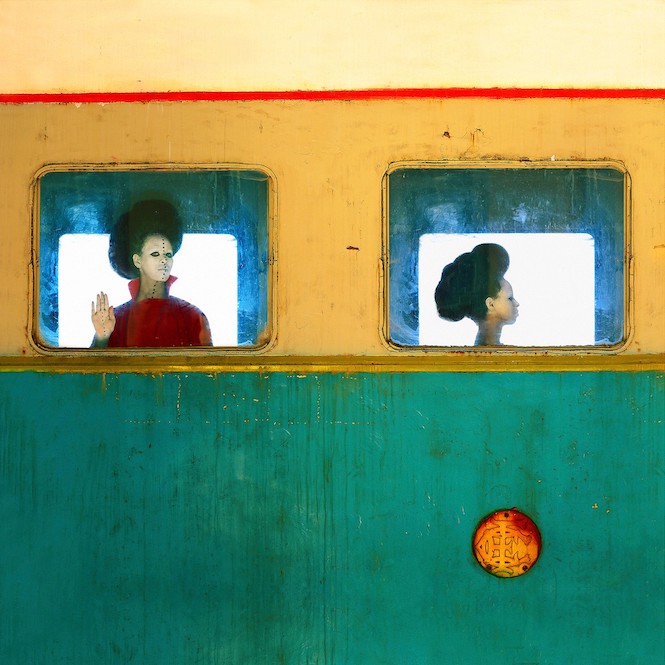
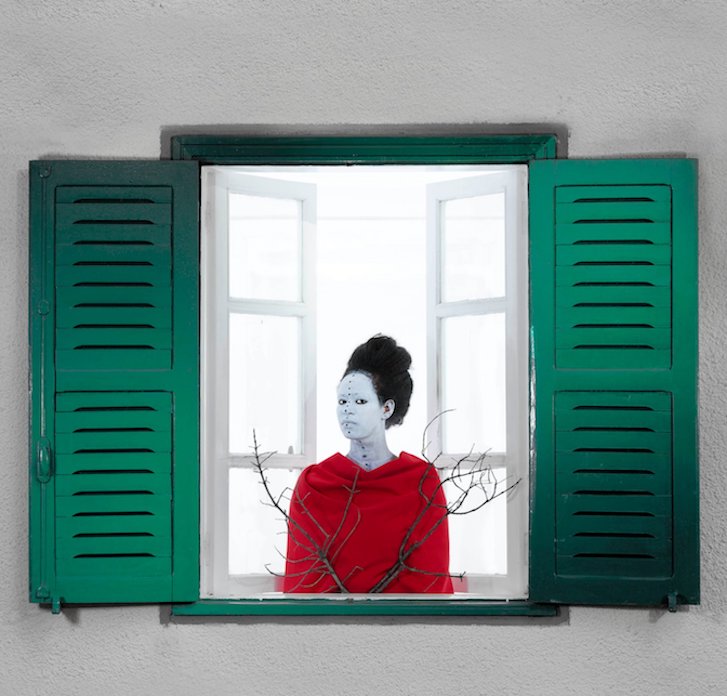


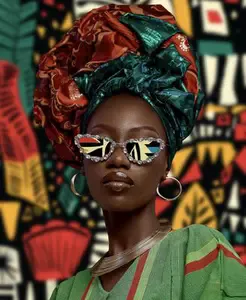
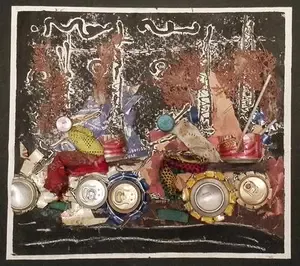
New! Comments
Have your say about what you just read! Leave me a comment in the box below.